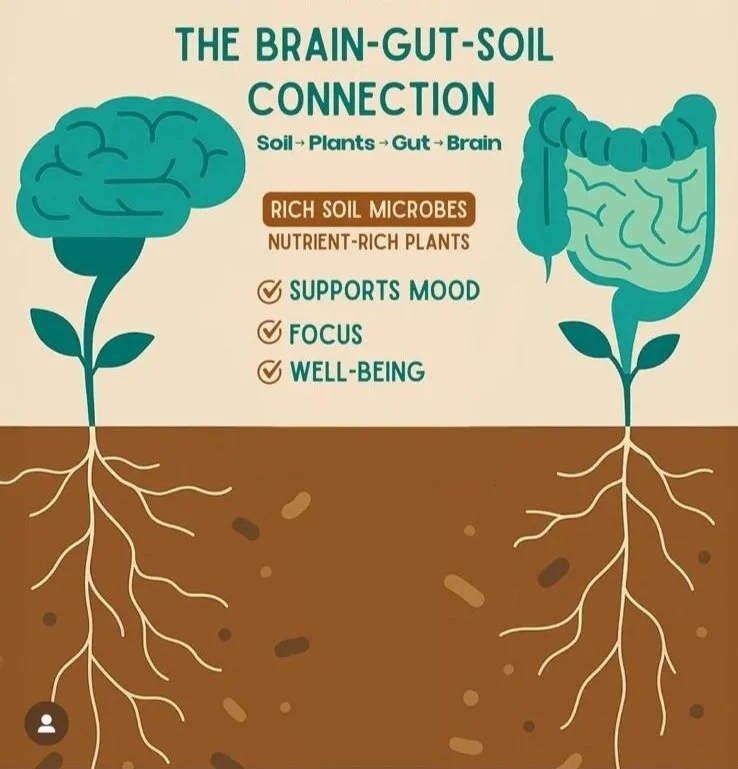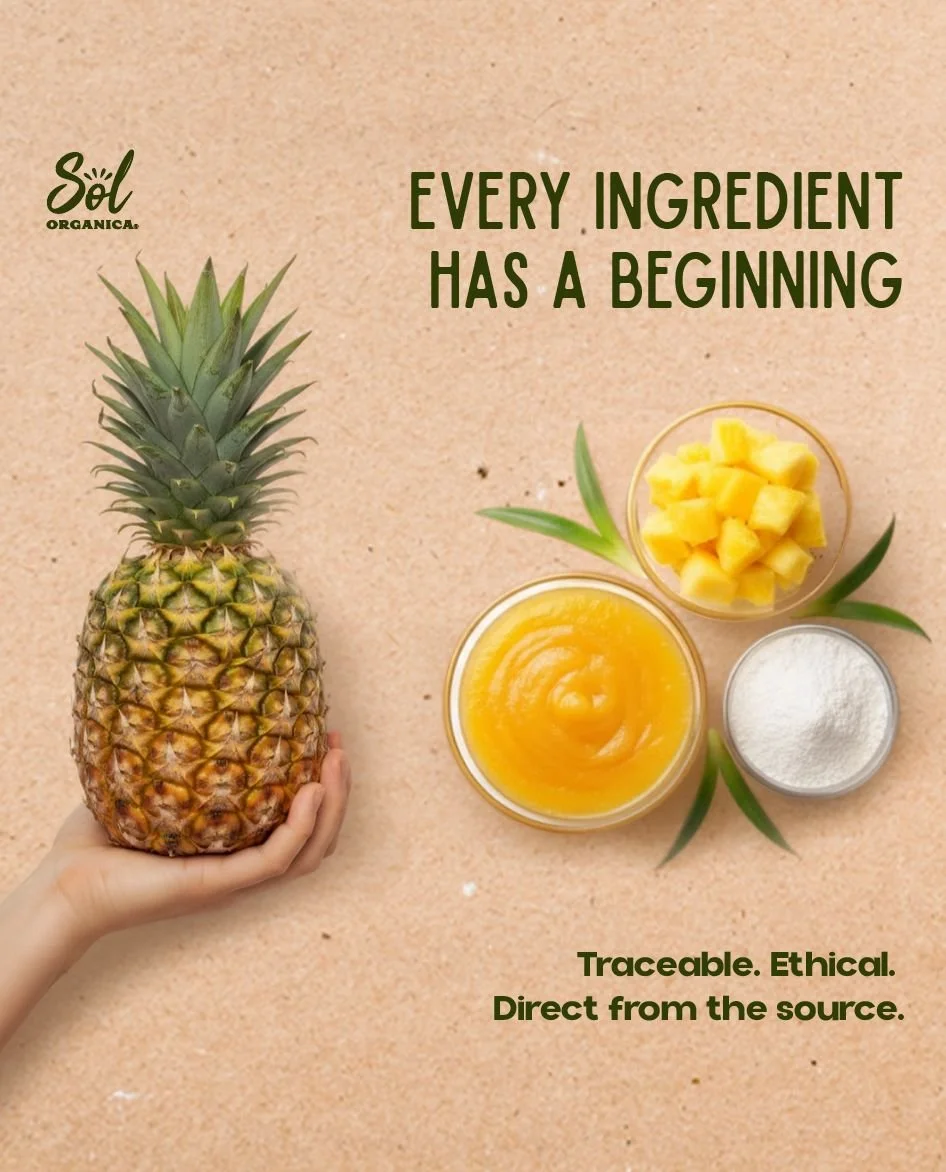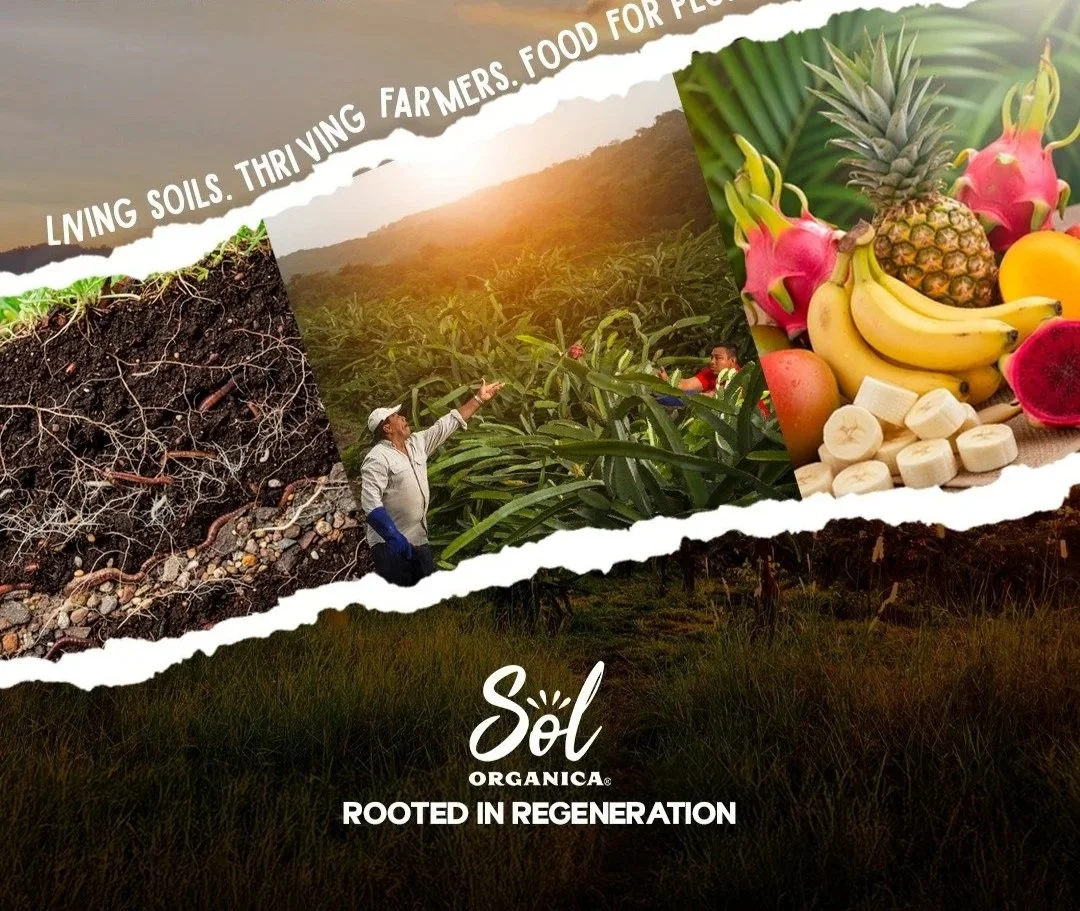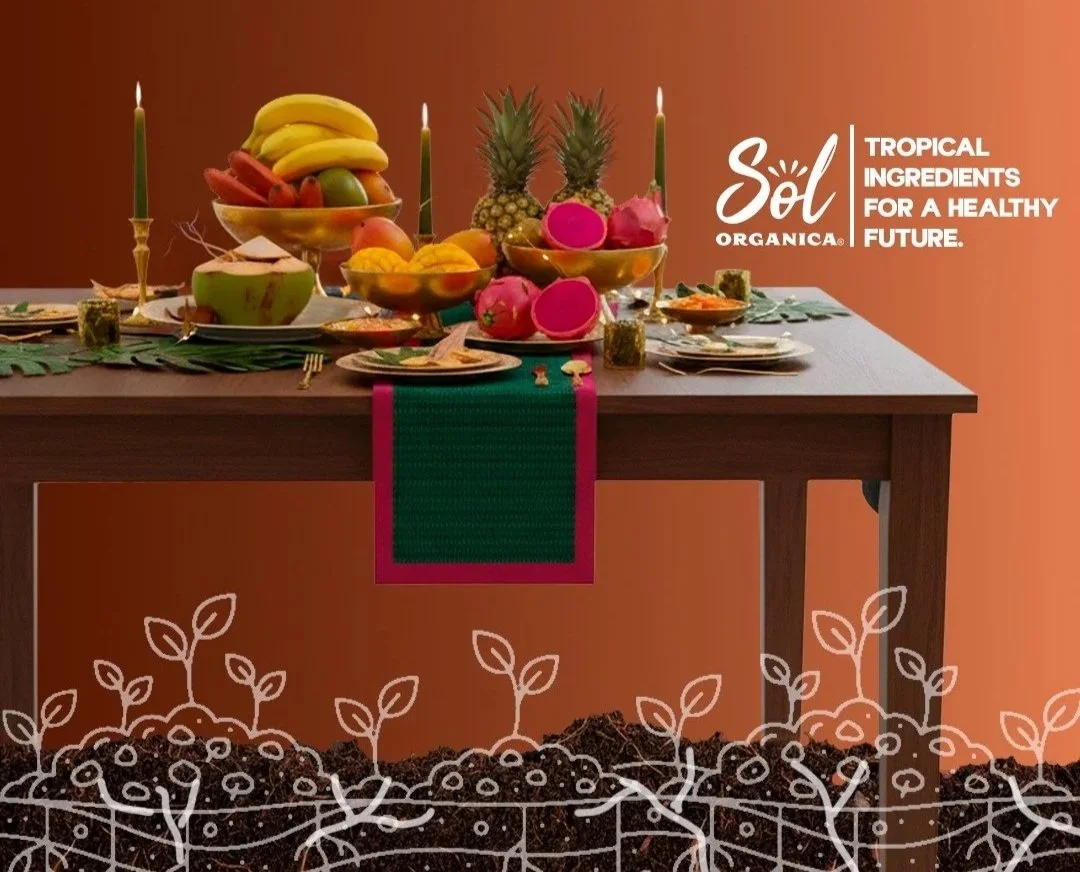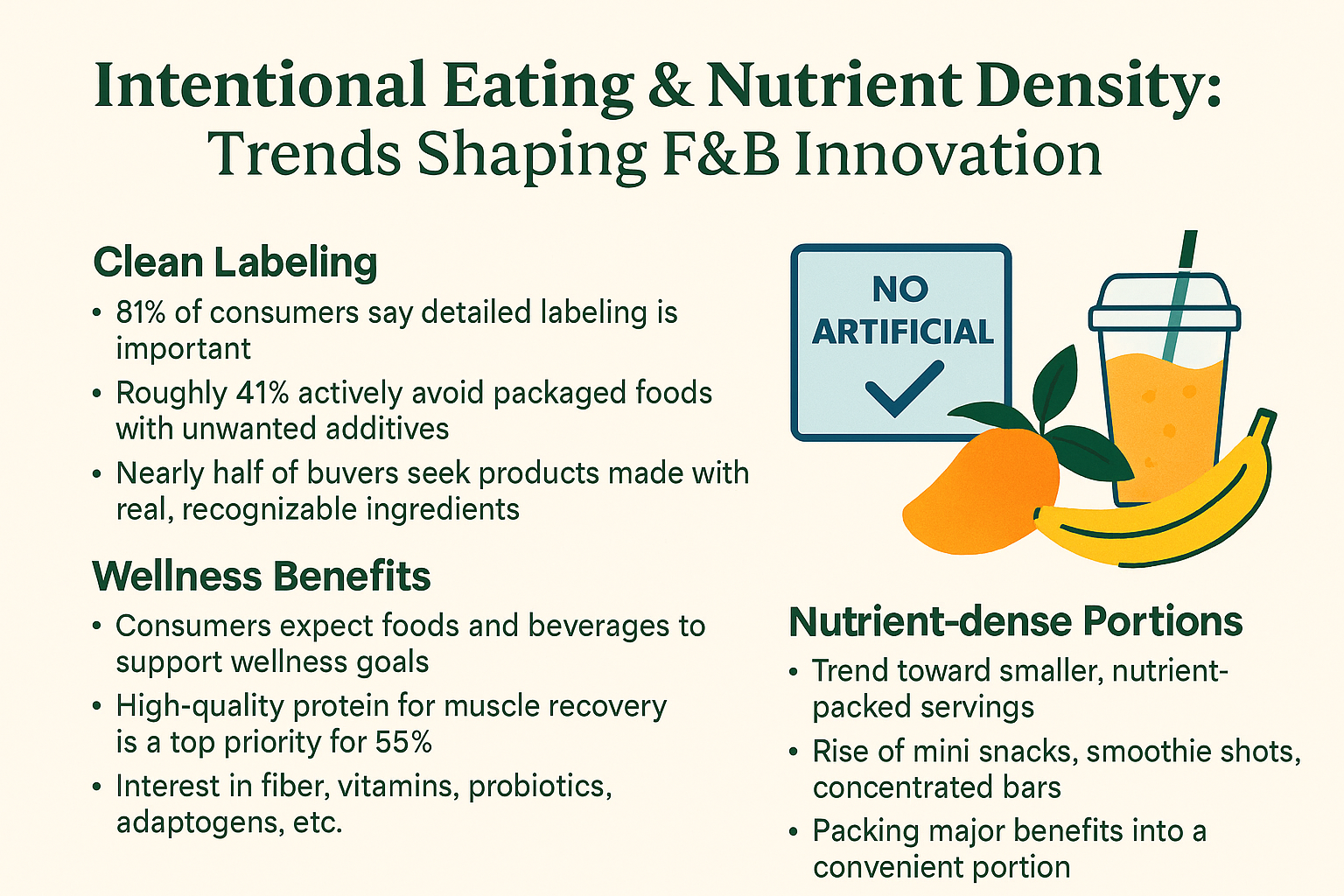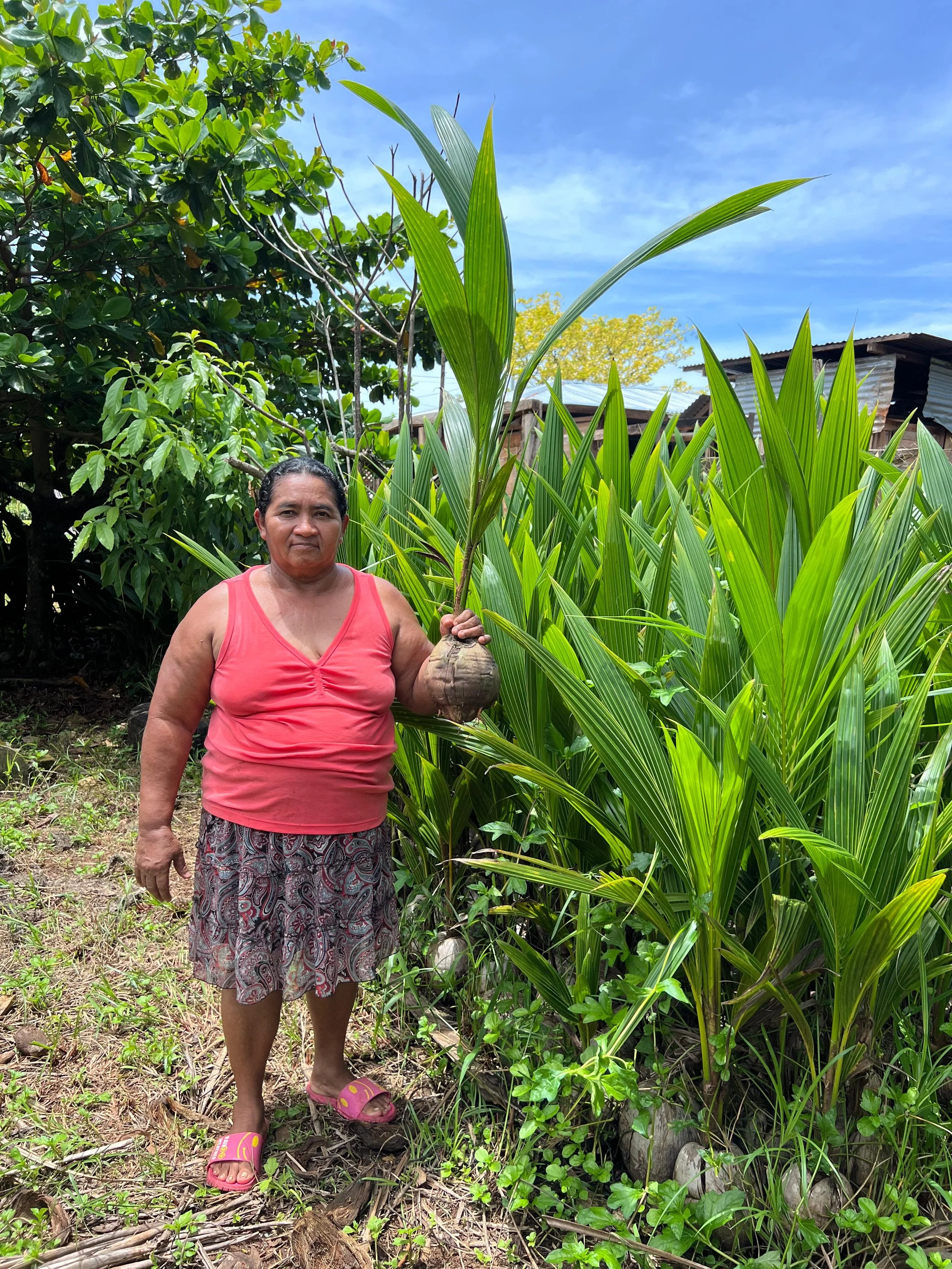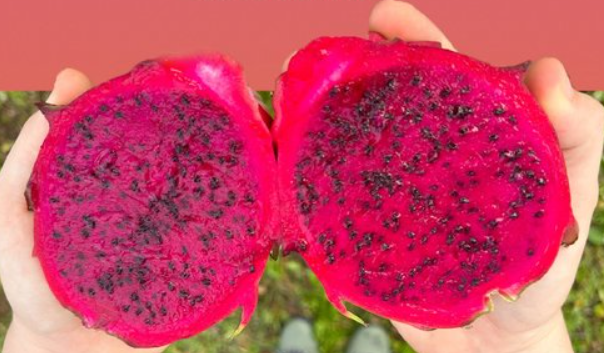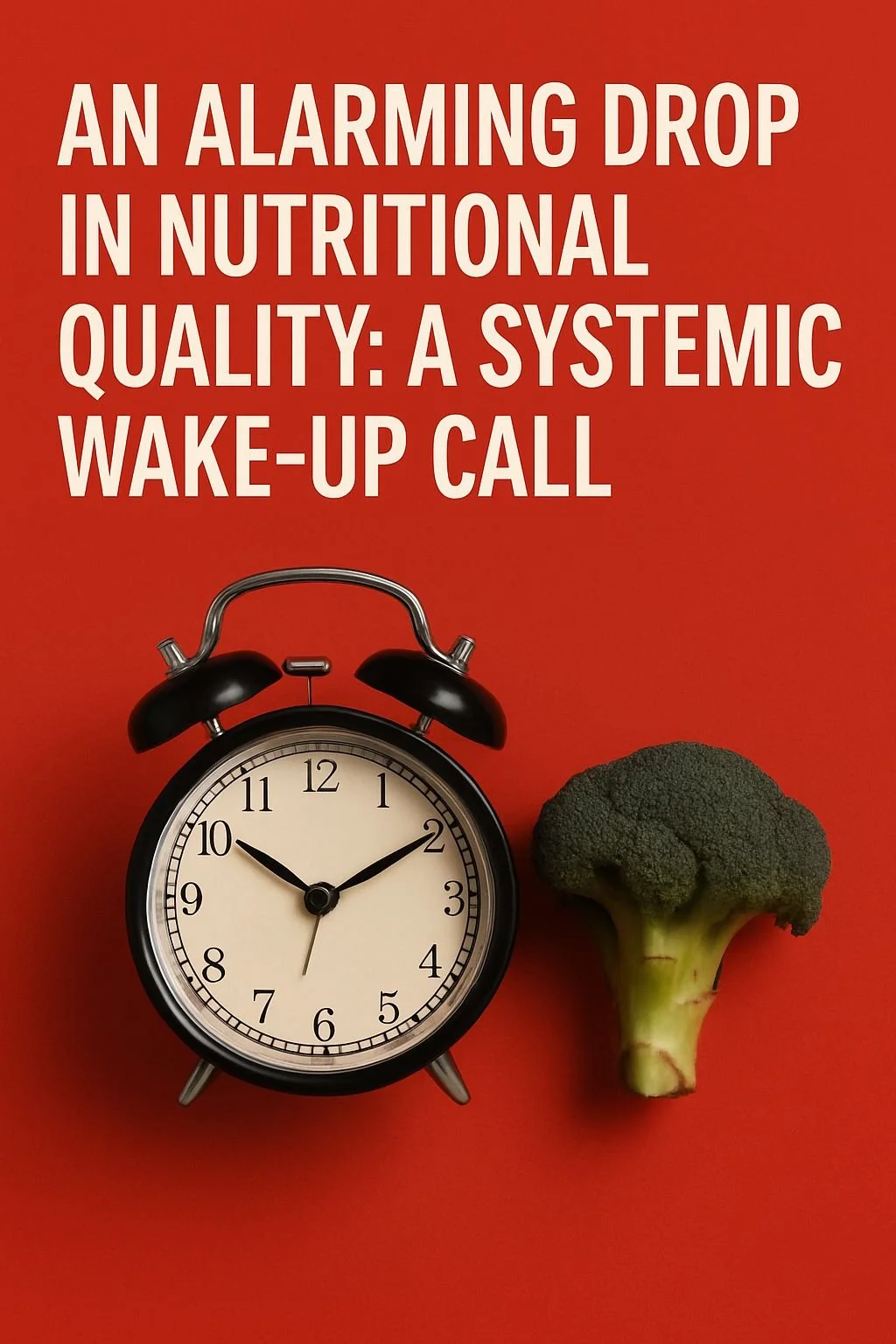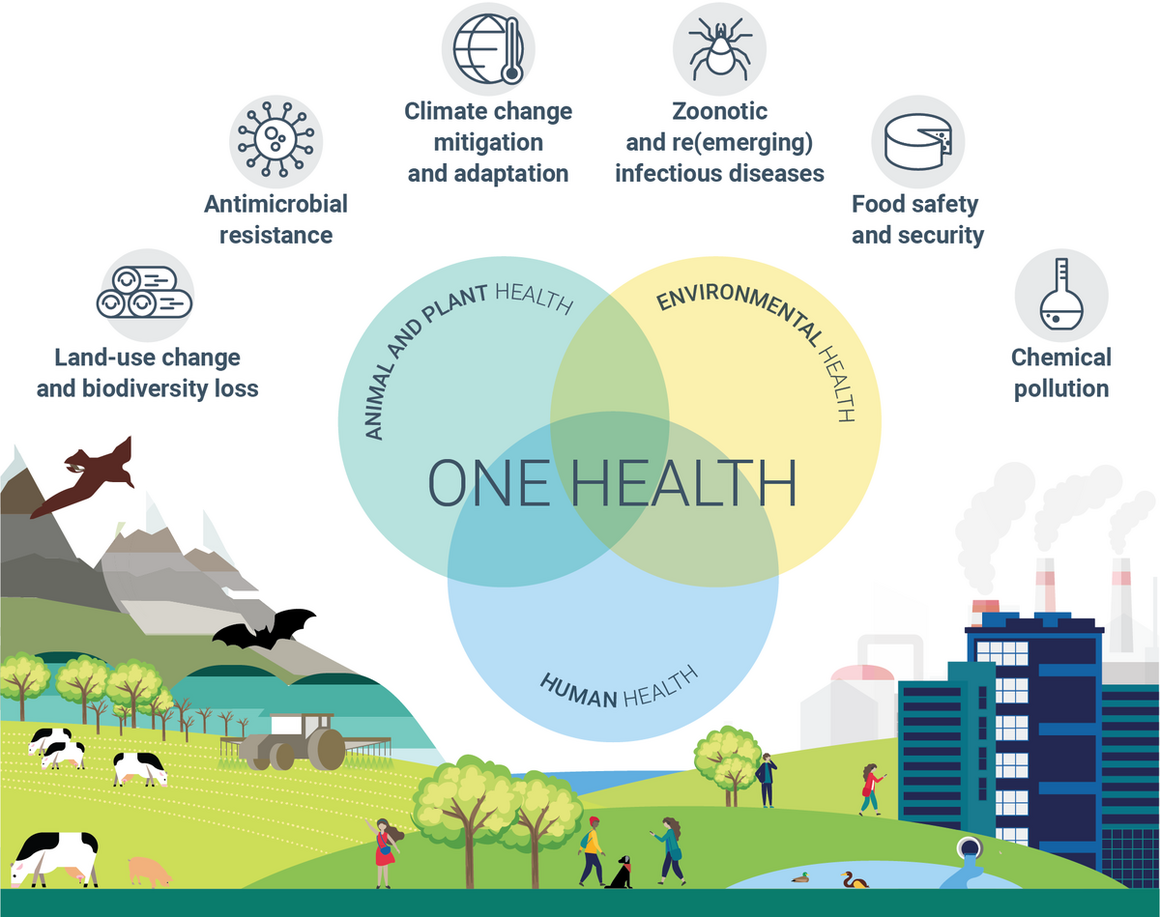
dECEMBER MONTHLY MORSELS!
OCTOBER MONTHLY MORSELS
May monthly Morsels: GUT BOOSTERS: DRAGON FRUIT AND COCONUT
November Monthly morsels: Introducing our new regenerative organic certified® Coconut
Frozen Indulgence, Reimagined: How Clean-Label Tropical Ingredients Are Elevating Ice Cream and Frozen Treats
Ice cream and frozen desserts are undergoing a quiet transformation. What was once defined primarily by indulgence is now being reshaped by evolving consumer expectations around ingredient quality, transparency, and sensory experience. For food and beverage brands, this shift presents an opportunity to elevate frozen offerings without sacrificing pleasure, by rethinking the ingredients at their core.
Across global markets, demand is growing for frozen treats that balance indulgence with cleaner labels, real fruit content, and authentic flavor. Consumers are gravitating toward products that feel premium and intentional: vibrant sorbets, fruit-forward ice creams, dairy-free alternatives, frozen smoothies, and hybrid desserts that deliver both texture and freshness. At the same time, brands are under pressure to maintain consistency, scalability, and supply reliability, especially in frozen formats.
This is where high-quality frozen fruit ingredients play a decisive role.
Why Frozen Formats Are Driving Innovation
Frozen applications offer clear advantages for both developers and consumers. From an R&D perspective, freezing preserves flavor, color, and nutritional integrity while allowing for year-round consistency. For brands, frozen products support longer shelf life, reduced food waste, and more predictable inventory management, all while meeting rising expectations for freshness and quality.
Within this category, IQF fruits and fruit purées have become foundational tools for innovation. Individually Quick Frozen (IQF) fruit allows developers to work with whole fruit pieces that maintain structure and sensory appeal, ideal for inclusions, swirls, toppings, and layered textures. Fruit purées and juices provide smoothness, intensity, and vibrant color, supporting everything from classic ice creams to plant-based frozen desserts and frozen beverage formats.
Elevating Frozen Indulgence with Regenerative Tropical Fruits
Tropical fruits bring particular value to frozen indulgence. Their natural sweetness, acidity, and aromatic profiles translate exceptionally well in frozen applications, creating products that feel indulgent while remaining ingredient-led.
At Sol Organica, our frozen portfolio, including IQF fruits, purées, and juices, is sourced from Regenerative Organic Certified® and Organic Certified farms, grown by smallholder farmers in Nicaragua. These farms are located in regions with volcanic, mineral-rich soils, managed through regenerative organic agricultural practices that rebuild soil health, support biodiversity, and strengthen long-term farm resilience.
Many of the fruits we supply are heirloom varieties, selected for their depth of flavor, natural balance, and nutritional integrity. When combined with healthy soils and careful harvest timing, these varietals deliver vibrant taste and consistency that carry through even after freezing. This is especially important in frozen applications, where the ingredient itself must do the work, providing flavor, color, and mouthfeel without reliance on artificial enhancement.
Our fruits are processed without added sugars, sulfites, or unnecessary processing aids, allowing brands to build frozen products where indulgence comes directly from the fruit.
Consistency, Performance, and Trust at Scale
For procurement and supply chain teams, frozen ingredients also offer operational stability. Consistent specifications, reliable availability, and traceable sourcing reduce formulation risk and support long-term planning. Sol Organica’s direct trade model, built on long-term partnerships with smallholder farmers, enables transparency from farm to processing, supporting quality control and dependable supply.
Regenerative organic practices further strengthen this foundation by supporting crop resilience and yield stability over time, an increasingly important consideration as climate variability affects tropical agriculture.
The Future of Frozen Is Intentional
Frozen indulgence today is shaped by more than texture and sweetness. It reflects ingredient integrity, sourcing values, and the ability to deliver sensory pleasure through real food.
As ice cream and frozen desserts continue to evolve, tropical IQF fruits, purées, and juices sourced through regenerative and organic systems offer brands a powerful way to innovate with confidence. With the right ingredients, frozen products can deliver indulgence, clarity, and credibility — all at once.
Contact us at sales@solorganica.com for more information
Digestive Wellness, Reimagined: How Regenerative Tropical Ingredients Are Shaping the Next Generation of Food & Beverage
Digestive health has become one of the most influential drivers in today’s wellness landscape. According to Mintel, more than 80% of U.S. consumers experienced some form of digestive discomfort in the past year, and the category continues to grow as consumers seek more holistic, diet-led solutions rather than reactive interventions. This shift presents a clear opportunity for food and beverage brands to rethink how ingredients contribute to everyday digestive support.
Rather than relying solely on supplements or highly processed functional additives, consumers are increasingly drawn to familiar, whole-food ingredients that support digestive wellness as part of daily nourishment. Mintel’s research highlights a growing interest in fiber, mineral-rich foods, and gut-brain balance, alongside a desire for clearer education and simpler formulations. In response, brands are seeking to incorporate digestive benefits directly into beverages, snacks, and staple products through strategic ingredient choices.
This is where tropical fruits and whole-food ingredients play a valuable role. Naturally occurring fibers, resistant starches, and plant-based nutrients found in fruits such as banana, coconut, mango, pineapple, and dragon fruit align well with consumer expectations for digestive support, while remaining approachable and versatile across applications. These ingredients allow brands to create products that feel nourishing rather than medicinal, supporting digestive comfort through regular consumption.
At Sol Organica, we support this evolution by supplying Regenerative Organic Certified® and Organic Certified tropical ingredients, including purées, juices, IQF pieces, solar-dried fruits, flours, powders, and fresh whole fruit, designed for clean-label, wellness-forward formulations. Our ingredients are processed with minimal intervention and without added sugars, sulfites, or artificial inputs, allowing brands to preserve the fruit’s natural nutritional integrity and flavor profile.
Beyond formulation benefits, sourcing integrity has become a key component of digestive wellness credibility. Mintel identifies a significant knowledge gap around digestive health, with consumers seeking trustworthy education and transparency from brands. Ingredients that are traceable, responsibly grown, and supported by verified agricultural practices help brands communicate authenticity and build long-term trust.
Sol Organica’s direct trade model and regenerative agricultural partnerships allow businesses to tell a more complete story, one that connects digestive wellness not only to nutrition but also to soil health, climate resilience, and farmer livelihoods. Regenerative practices support healthier soils and more resilient crops, which contribute to ingredient consistency and long-term supply reliability, critical considerations for brands scaling wellness-focused product lines.
As digestive health continues to integrate into broader conversations around mental well-being, immunity, and everyday vitality, food and beverage brands have an opportunity to lead with ingredients that support the whole system. With responsibly sourced tropical ingredients and transparent supply chains, wellness becomes something consumers can experience daily — naturally, simply, and with confidence.
Contact us to learn more sales@solorganica.com
From Soil to Shelf: The Lifecycle of Regenerative Tropical Fruits
For most ingredient buyers, quality begins with specifications. For Sol Organica, it begins long before that, in the soil itself. The journey of our tropical fruits is shaped by a regenerative organic model that values people, land, and long-term resilience, creating ingredients that support both product innovation and ethical sourcing.
Every tropical fruit we process carries the story of the ecosystem and community it grows from. And that story begins with rebuilding the foundation of all agriculture: soil health.
Rebuilding the Soil That Sustains Us
Regenerative organic agriculture restores the natural systems that nourish tropical fruits. Instead of relying on synthetic inputs, farmers use compost, groundcovers, and diverse plantings to build living soil. This boosts nutrient density, improves water retention in drought-prone areas, and reduces erosion, key challenges for smallholder farms in Nicaragua.
Healthier soils translate directly into more resilient crops: coconuts with richer fat content, bananas with deeper natural sweetness, and dragon fruit with vibrant pigments and stronger nutritional profiles. Regeneration is not an abstract philosophy here; it’s a tangible improvement in the quality of the ingredients our partners rely on.
Empowering Farmers at the Heart of the Process
The lifecycle of our fruit is inseparable from the livelihood of the farmers who grow it. Many smallholders in Nicaragua operate on limited land, with irregular access to markets, fair pricing, or technical support. Through our direct trade model, Sol Organica ensures that fruit is sourced with dignity, through transparent pricing, long-term contracts, agronomic support, and covering the costs and training required for Regenerative Organic Certified® production.
For farmers, these commitments mean more than better yields. They create pathways to financial stability, the ability to invest in homes, farms, and education, and renewed pride in the craft of growing food. When farmers thrive, landscapes thrive, and the fruits themselves reflect that care.
From Harvest to Processing: Protecting Natural Quality
Once harvested, fruits enter our processing ecosystem built around precision, safety, and traceability. Our facility is designed to uphold the integrity of regenerative fruit: minimal handling, rapid chilling where appropriate, and processing steps that preserve flavor, color, nutrients, and texture.
Whether a fruit becomes an IQF cube, a purée, or a solar-dried piece, we maintain cold-chain consistency and stringent quality checks to ensure every batch aligns with our specifications. This is where regenerative agriculture meets rigorous QA/QC — delivering tropical ingredients that perform reliably in product development.
A Supply Chain Rooted in Integrity
By the time our fruit reaches a brand’s formulation bench, it has moved through a fully traceable, values-aligned chain. Every stage — soil restoration, farmer support, harvest practices, and processing standards — contributes to a final ingredient that elevates both the product and the story behind it.
For food and beverage brands looking for clean-label functionality, ethical sourcing, and ingredients that reflect the future of agriculture, regenerative tropical fruits offer a pathway toward meaningful impact. And their journey from soil to shelf shows how deeply quality is connected to the land and the people who care for it.
Holiday Formulations: How Tropical Fruit Purées & IQFs Can Transform Seasonal Beverages & Snacks
Why Tropical Ingredients Shine During the Holiday Season
Holiday innovation is increasingly moving beyond traditional flavors. Today’s consumers want seasonal products that feel comforting yet vibrant, indulgent yet clean-label, familiar yet globally inspired. Tropical fruits offer the perfect bridge: naturally sweet, nutrient-rich, and versatile across a wide range of holiday formulations.
For beverage developers, snack creators, and plant-based brands, purées and IQF fruits bring a level of consistency and functionality that fresh fruit simply cannot match, especially during the busy holiday season when shelf life, reliability, and ease of production are essential.
A New Era of Clean-Label Holiday Innovation
As 2025 trends continue to shape product development, tropical fruits are stepping into the spotlight. They offer natural flavor, color, sweetness, and hydration without fillers, concentrates, or artificial enhancers. Sol Organica’s purées and IQF fruits are crafted with nothing added, no sugars, no sulfites, and no stabilizers, giving brands a clean foundation for beverages and snacks that support transparency and trust.
This purity is increasingly important as consumers seek holiday products that feel better-for-you without sacrificing indulgence. From functional winter smoothies to cozy warm beverages or festive snack bars, tropical ingredients offer sensory richness while aligning with today’s values-driven market.
The Functional Power of Purées and IQFs
Beyond flavor, tropical fruits provide natural nutritional benefits that resonate during the holiday season when energy, immunity, and wellness are top-of-mind. Coconut adds creamy mouthfeel and natural hydration; banana contributes potassium and fiber; dragon fruit provides vibrant color and antioxidants.
To make formulation easier for R&D teams, IQFs and purées deliver reliable performance and year-round access to fruits that would otherwise be seasonal. They allow brands to maintain consistent flavor profiles and textures while reducing waste and increasing efficiency, which are key advantages when holiday production demands spike.
Here’s where these ingredients truly elevate innovation:
Purées provide a smooth, uniform texture ideal for beverages, sauces, fillings, and dairy alternatives.
IQFs offer precise portioning, cleaner nutrition retention, and minimal processing that preserves natural color and flavor.
Together, they empower brands to create holiday products that balance comfort with creativity.
From Classic to Cutting-Edge Holiday Applications
Tropical ingredients open the door to an exciting range of festive product concepts. Think coconut-based winter lattes, dragon fruit sparkling tonics for seasonal gatherings, banana-infused snack bites designed for holiday travel, or functional frozen desserts with tropical notes.
These ingredients also support the development of premium seasonal launches, the kind that stand out in retail environments and deliver memorable sensory experiences. Their versatility makes them adaptable to traditional winter profiles like cinnamon, vanilla, and nutmeg, while also introducing refreshing new dimensions.
A Values-Aligned Ingredient Choice
At Sol Organica, our purées and IQFs come directly from our partnering smallholder farmers in Nicaragua using regenerative organic and organic agricultural practices. This means holiday products aren’t just delicious, they also support soil health, biodiversity, farmer livelihoods, and climate resilience.
When brands choose ingredients sourced through direct trade and regenerative organic agriculture, they add meaningful impact to their holiday launches. This story resonates deeply with consumers during a season where values, generosity, and connection matter most.
Let’s Build Your Next Holiday Standout
As R&D teams begin planning seasonal launches for 2025 and 2026, tropical ingredients can unlock fresh inspiration and superior functionality.
If your brand is developing beverages, snacks, or frozen creations for the holiday season, connect with us at Sol Organica — we’d be honored to help bring your next standout formulation to life with clean-label, traceable, and regenerative ingredients.
Intentional Eating and Nutrient Density: Trends Shaping F&B Innovation
Consumers today are exercising a new level of intentionality in their diets. Shoppers scrutinize labels, demand clean ingredients, and understand food as part of a wellness strategy.
In the nutrition-drink category, for example:
81% of consumers say detailed labeling is important
41% actively avoid packaged foods with unwanted additives
Nearly half of buyers seek products made with real, recognizable ingredients
As a result, brands are reformulating with all-natural recipes, whole-fruit purées, and clear “no artificial” claims. This clean-label focus reflects a broader clean-eating movement: one industry report notes that health-conscious shoppers are “clamouring for clean label” as they grow skeptical of ultra-processed foods.
The rise of intentional eating means ingredient quality and transparency are top priorities; consumers want to know exactly what’s in their foods and drinks.
Wellness Goals and Functional Benefits
Alongside clean ingredients, modern consumers expect foods and beverages to actively support their wellness goals. Products that deliver metabolic balance, digestive support, or other targeted benefits are highly sought.
For example, manufacturers are using tropical fruits (rich in vitamin C and fiber) to create immunity-boosting or muscle-supporting formulations. Nutrition products now aim to “address overall wellness (energy, immunity, gut health, etc.), not just calories or weight loss.”
Formulas often feature high-quality protein for muscle recovery (a top priority for 55% of consumers) along with added fiber, vitamins, or probiotics.
Roughly one-third of buyers in the nutrition-drink segment express interest in probiotics/prebiotics, adaptogens, or collagen for gut or stress benefits.
In practice, this means drinks and snacks are being formulated as “wellness boosters.” A banana-mango smoothie might be marketed as both a protein snack and a full serving of fruit, delivering potassium, vitamin C, and fiber in one package. Digestive health is also addressed through added fiber or live cultures, and low-glycemic sweeteners support metabolic health.
The bottom line: today’s products must do more than fill bellies; they must contribute to overall health and vitality.
Nutrient-Dense Portions
Consumers are also rethinking portion and delivery format. The trend is toward smaller, nutrient-packed servings rather than large volumes of empty calories. Even without mentioning diet fads or weight-loss drugs, the effect is clear: people want more nutrition per bite.
A recent analysis noted that users of new appetite-suppressing medications seek out “nutrient-dense foods that can make up for the lower levels of food actually consumed.”
In other words, as overall intake shrinks, every ounce of food must count.
This is evident in the rise of:
mini snacks
smoothie shots
concentrated bars
…compact products fortified with protein, fiber, and micronutrients.
For example, beverage formulators are offering single-serve shakes or powders with 20+ grams of protein plus vitamins, yet only a fraction of the sugar.
Packaging now often highlights how one small serving delivers major benefits: a mango-coconut smoothie pouch can tout “High Protein, High Fiber, No Added Sugar,” packing an afternoon’s worth of nutrition into a convenient portion.
By focusing on nutrient density, brands satisfy modern consumers who refuse to compromise wellness for convenience.
Formulation Strategies Across Snacks and Beverages
These consumer demands are reshaping product development across the board. In beverages, formulators are leaning on tropical fruit ingredients to achieve clean, functional profiles. Real mango, passion fruit, or dragon fruit purées provide exotic flavor plus naturally occurring vitamins and antioxidants.
Their inherent sweetness and nutrients allow brands to minimize added sugar; many companies now use ripe fruit and plant-based sweeteners so they can claim “no added sugar” on pack.
Texture and mouthfeel are also in focus: Mintel research finds that smoother, creamier textures and simple ingredient lists resonate more than flashy new flavors. Thus, when tropical flavors are introduced (say, a dragonfruit-coconut blend), they come with a story of improvement (“now ultra-smooth!”) rather than a gimmick alone.
Even indulgent tastes are repurposed: a decadent coconut-mango smoothie can feel like a tropical treat yet still be high in protein and fiber, embodying the “guilt-free indulgence” ideal.
In the snack arena
A similar logic applies. Protein bars and bites are getting smaller and cleaner: think pea-protein bar with chia seeds and goji powder, wrapped in minimal film. Manufacturers highlight on-pack that a bar is “high in protein, with real fruit and seeds,” appealing to label-conscious buyers.
Products once considered indulgent (e.g., dessert-flavored bars) are being reformulated with whole ingredients. For instance, a chocolate-mango protein bar might combine cocoa and real freeze-dried mango pieces so consumers enjoy a rich flavor without the sugar crash.
Across chilled meals, bakery and snack foods, the same pattern holds: ingredients like lentils, nuts, seeds, and fruits are favored as “health credentials” rather than relying on artificial additives.
In short, R&D teams are building the nutrition back into foods, making every bite count toward satiety and health.
Sol Organica: Tropical, Sustainable Ingredients for Modern Diets
As these trends converge, ingredient partners who “get it” become invaluable. Sol Organica meets the moment with premium, regenerative-sourced tropical fruits that align naturally with clean-label and nutrient-dense strategies. The company’s portfolio of Regenerative Organic Certified® and Organic Certified tropical fruits embodies transparency and quality.
In fact, building a brand story around regenerative organic farming and cultivation is a proven differentiator for label-conscious consumers.
Using Sol Organica’s products lets formulators tout both delicious exotic flavor and measurable nutrition (vitamins, fiber, and antioxidants) on pack. It also allows certifications (Regenerative Organic Certified®, USDA Organic, etc.) that appeal to shoppers seeking ethical, “no compromise” ingredients.
In practice, that means a beverage developer can create a clean-label tropical shake with “whole organic mango and banana” and confidently highlight the health credentials (excellent vitamin C, high fiber) tied to those fruits.
By partnering with Sol Organica, brands gain access to superior tropical ingredients that check every consumer-driven box: transparency, nutrient density, natural functionality, and sustainability.
Whether formulating a high-protein recovery drink, a functional snack bar, or a gut-friendly smoothie, Sol Organica’s fruits provide the vivid color and rich nutrient profile consumers expect, without any artificial shortcuts.
In an era of thoughtful eating, such authenticity is a competitive edge.
Ultimately, Sol Organica positions itself not just as a supplier but as a co-innovator: helping brands develop the next generation of clean-label, wellness-focused products that today’s educated consumers demand.
Contact us to learn more: sales@solorganica.com
[Sources: Consumer insights from Mintel’s Nutrition Drinks – US – 2025 report and industry analyses]
Regenerating the Foundation: How Sol Organica Builds Living Soils from the Ground Up 🌱
In every handful of healthy soil lies a quiet ecosystem, alive, complex, and essential to life. It holds the foundation of our food systems, our climate stability, and the resilience of our farming communities. Yet across the tropics, this foundation is under threat. Erosion, nutrient loss, and unpredictable rainfall patterns, fueled by decades of extractive agricultural practices, are pushing the soil to its limits.
At Sol Organica, we’ve seen these challenges firsthand in the fields of Nicaragua, where our farmer partners cultivate tropical fruits. But we’ve also seen something else: how regenerative soil practices, applied consistently and collaboratively, can bring degraded land back to life.
The Problem Beneath Our Feet
Tropical soils are naturally dynamic but fragile. Years of conventional farming have depleted organic matter, reduced microbial life, and made crops more vulnerable to pests and drought. Without deep roots or living ground cover, precious topsoil washes away in heavy rains.
For many smallholder farmers, the results are immediate and personal: lower yields, reduced income, and more dependence on costly inputs that only worsen the cycle. The challenge is not just about productivity; it’s about the long-term ability to grow food, sustain livelihoods, and protect ecosystems.
Our Regenerative Solution: Science Meets Partnership
Regeneration is not a slogan, it’s a science, and it’s a shared commitment. At Sol Organica, our agronomy team works directly with farmers to monitor, measure, and improve soil health year-round. Using representative soil sampling, we analyze key indicators like nitrate balance, organic matter, and moisture retention. This data guides farm-specific nutrition plans and regenerative interventions.
Here’s how these principles translate into practice across our network:
Cover Cropping & Intercropping: To prevent erosion and boost soil fertility, farmers plant nitrogen-fixing legumes and ground cover between rows of dragon fruit or banana. In some regions, other plants are intercropped, creating living barriers that protect against wind and runoff while maintaining biodiversity.
Composting: Each year, farmers collectively produce and apply thousands of metric tons of organic compost, made from banana waste, coffee pulp, and other crop residues. This not only recycles nutrients but restores microbial life, improves soil structure, and enhances water retention.
Contour Planting & Water Management: On sloped lands, contour ditches and planting lines slow water flow, allowing soil to absorb rainfall rather than lose it. These practices reduce flooding and prevent topsoil loss, critical in a climate with alternating dry and rainy extremes.
Living Fences & Agroforestry: Trees like jocote, citrus, and madre de cacao are planted as living boundaries, shading crops and attracting pollinators. In coconut groves, these trees also protect young palms and help maintain biodiversity.
Tracking Progress & Measuring Impact
Through the practices outlined in our Impact Report, Sol Organica tracks improvements in organic matter, nutrient density, and yield stability year over year. Farmers who once faced compacted, lifeless soil now see healthier root systems and improved moisture retention. These changes are not immediate; they require patience and consistency, but the results are tangible: better yields, more resilient crops, and a natural buffer against climate shocks.
The Human Element: Knowledge Exchange
Our approach is rooted in partnership, not prescription. Regeneration begins with local knowledge; many Nicaraguan farmers have practiced traditional agroecological methods for generations. Sol Organica’s role is to strengthen this knowledge with technical training, scientific tools, and economic support, ensuring that farmers can sustain regenerative practices long-term.
By blending indigenous wisdom and modern agronomy, we create a model that is both scalable and deeply human.
Why It Matters for the Future
Healthy soils don’t just grow crops, they grow communities. Every improvement in soil structure increases food security, water conservation, and carbon sequestration. For businesses sourcing from Sol Organica, it also means consistent quality, nutrient-dense ingredients, and a traceable, ethical impact that resonates with today’s conscious consumers.
Regeneration is a journey, not a destination. The work continues every season, with every compost heap, every cover crop, and every farmer who decides to do things differently.
At Sol Organica, we believe the future of food begins where it always has—in living soil.
Key Takeaways
Soil regeneration is measurable: Through data-driven agronomy and soil testing, we monitor improvements in nutrient balance and organic matter.
Farmer partnerships drive impact: Regenerative change depends on local knowledge, consistent support, and fair trade models.
Better soil = better fruit: Healthier soils produce nutrient-rich fruit, supporting both planetary and human well-being.
From Soil to Spoon: The Story & Power of Organic Young Coconut Puree
In Nicaragua’s coastal belts, where sandy soils meet tropical sun and sea breeze, a quiet transformation is unfolding. Coconut farmers who once struggled with soil degradation, unstable markets, and unpredictable yields are now growing resilience, tree by tree, coconut by coconut. Among them is Ángela Domitila Chamorro Rodríguez, whose journey from hardship to leadership mirrors the mission behind Sol Organica’s Organic Young Coconut Puree.
The Farmer & Her Journey
Ángela faced challenges common to coconut farmers in her region: soil fertility loss, erratic weather, and limited access to tools and support. Through her partnership with Sol Organica, she gained agronomic guidance, technical training, and reliable purchase agreements. Over time, she adopted sustainable practices such as planting living fences around her coconut groves, enriching her land with compost made from crop residues, and integrating shade crops to preserve moisture and protect roots.
Today, she cultivates new hectares with resilient varieties like Brazilian Green Dwarf and uses intercropping to diversify production and protect against market swings. Her success is visible, not just in yields, but in her confidence, her stable income, and the growing strength of her community.
Regenerative Care Behind the Coconut
At the heart of high-quality coconut production lies soil health and ecological balance. Sol Organica’s smallholder farming partners use organic and regenerative methods, including composting, cover cropping, and agroforestry systems. These practices help restore organic matter, improve microbial life, stabilize soils, and retain moisture, especially vital in sandy coastal soils prone to nutrient loss.
Each coconut is harvested by hand at its peak, then processed locally under Sol Organica’s rigorous quality and traceability protocols. This ensures not only the integrity of the product but also the well-being of the farmers who grow it.
What Makes the Puree Special
Sol Organica’s Organic Young Coconut Puree is a clean-label, nutrient-rich ingredient crafted from the perfect balance of tender coconut meat and hydrating coconut water. The result is a naturally silky texture and tropical flavor that captures the essence of the fruit; no added sugar, no preservatives, and no artificial ingredients.
Our process preserves the coconut’s pure nutrition: healthy fats for energy and satiety, electrolytes for hydration, and antioxidants that support overall wellness. Conveniently frozen, it’s ready for use in smoothies, plant-based beverages, frozen desserts, sauces, and wellness formulations. Learn more
Why It Matters for Businesses
Today’s consumers want more than just plant-based; they want purity, provenance, and performance. Sol Organica’s coconut puree answers that call. Its superior flavor and nutrient density elevate the sensory and functional profile of any product line, while its regenerative, farmer-direct origin adds credibility and value to every label.
For food and beverage brands, this means a clean, high-impact ingredient that’s easy to integrate into production, backed by a traceable story of sustainability and social impact. Every purchase supports farming communities like Ángela’s, helping regenerate both the soil and the livelihoods that depend on it.
At Sol Organica, we believe that real wellness starts at the source, with farmers, soil, and the integrity of the fruit itself. Our Organic Young Coconut Puree is more than an ingredient; it’s a connection between the tropical farms of Nicaragua and the brands shaping a healthier future.
If you’re developing clean-label, plant-based, or functional food products, partner with us to bring regenerative ingredients and real impact to your consumers.
Contact us to explore our coconut puree and sourcing model. info@solorganica.com
3 Key Takeaways
Regeneration + farmer support = product integrity. The success of this coconut puree is rooted in soil care, composting, and long-term partnerships with smallholder farmers.
Pure, balanced formulation matters. Our puree blends coconut meat and water, free from additives, offering natural sweetness, texture, and functionality.
Wellness trends favor products like this. Clean-label, plant-based, traceable ingredients are shaping the future of the food industry—and businesses that source them gain meaningful differentiation.
A Buyer’s Roadmap to Sourcing Regenerative Organic Tropical Ingredients
When it comes to sourcing tropical fruits and ingredients, certifications matter. They aren’t just stamps on a package; they tell a story about how food was grown, who grew it, and what impact it leaves on the planet. For today’s buyers, navigating the difference between Organic, Fair Trade, and Regenerative Organic Certified® can feel overwhelming.
At Sol Organica, this isn’t theory. We were the first fruit processing company in the world to achieve Regenerative Organic Certified® status, and that milestone didn’t happen by accident. It stemmed from years of working side by side with smallholder farmers in Nicaragua, supporting them not just to meet certification requirements, but to transform their farms and futures. That’s the difference between checking a box and building a truly regenerative supply chain.
Here’s a roadmap to help you understand how each certification plays a role and why Regenerative Organic is the future of tropical sourcing.
Organic: The Foundation of Clean Farming
Organic certification eliminates synthetic fertilizers, pesticides, and GMOs. It assures buyers that ingredients are grown in ways that protect soil, water, and ecosystems. At Sol Organica, we’ve helped farmers transition away from chemical dependency, opening doors to healthier crops and cleaner fruit.
However, while Organic reduces harm, it doesn’t always go far enough to restore ecosystems or support farmer livelihoods actively.
Fair Trade: Putting Farmers at the Center
Fair Trade certification adds a social and economic layer. It guarantees farmers fair pay, long-term contracts, and community premiums that fund schools, clinics, or infrastructure.
For many of our partner farmers, Fair Trade was the first step toward financial stability. By partnering directly, we ensure they aren’t just selling fruit, they’re building businesses, sending children to school, and breaking cycles of poverty.
Regenerative Organic Certified®: The Gold Standard
Regenerative Organic Certified® (ROC™) builds on Organic and Fair Trade, while setting the highest bar across three pillars:
Soil health: Compost, intercropping, cover crops, and agroforestry restore ecosystems and increase resilience.
Farmer fairness: Direct trade models and dignified wages ensure thriving communities.
Animal welfare (where relevant): Strict standards for humane treatment.
When Sol Organica achieved ROC™, it wasn’t just a certification for us. It was recognition of the holistic way we work, regenerating soils, supporting farmers step-by-step to achieve their own certifications, and providing global buyers with ingredients rooted in transparency and integrity.
Why This Matters for Buyers
Consumers today don’t just want food, they want food that’s good for them, for farmers, and for the planet. ROC™ ingredients deliver on that expectation. They go beyond sustainability by actively regenerating ecosystems, improving nutrition, elevating flavor, and strengthening communities.
Partnering with Sol Organica means more than accessing certified tropical fruits. It means joining a value chain where your brand’s story becomes part of ours: a story of regeneration, fairness, and quality.
Because in today’s food landscape, certifications aren’t just labels. They’re trust, resilience, and a roadmap to long-term success.
3 Key Takeaways for Buyers
Organic = Clean farming, no synthetics.
Fair Trade = Fair pay and stronger communities.
Regenerative Organic Certified® = The gold standard, combining soil health, farmer fairness, and ecological resilience.
With Sol Organica, you don’t just source fruit, you source the future of food.
The Hidden Dangers of Ultra-Processed Foods
Ultra-processed foods are everywhere in today’s diet, think chips, sodas, frozen dinners, and sugary snacks. Recent evidence bluntly warns that “eating ultra-processed foods might hinder attempts to lose weight” even on a healthy diet. These so-called foods are engineered for taste, but scientists have found they come with serious hidden dangers: they are typically stripped of real nutrients and packed with refined sugars, artificial flavors, and preservatives. In fact, dozens of studies link heavy ultra-processed diets to obesity, heart disease, diabetes, fatty liver, cancer, asthma, depression, and anxiety. One public-health leader even warns UPFs are essentially “poisoning the American people.”
Research: Double Weight Loss with Whole Foods
A landmark trial in Nature Medicine found that people eating only minimally processed foods lost twice as much weight over 8 weeks as those eating ultra-processed diets. On average, the whole-food group lost about 2% of their body weight (vs. ~1% on the UPF plan) and ate far fewer calories – roughly 290 fewer per day compared to 120 fewer for the processed group. They also reported far fewer cravings and consistently ate more slowly on whole foods. In short, swapping pasta, rice, and beans for packaged bars and ready meals nearly doubled fat loss and dramatically improved satiety.
Mood and Metabolism: More Harms
Ultra-processed foods don’t just bloat bodies; they can warp brains and metabolisms. A large study of 31,000 people found that those eating the most UPFs (nine or more servings per day) had a 50% higher risk of depression than those eating the least. These chemically heavy foods also drive inflammation, insulin resistance, and high blood pressure, contributing to cognitive decline and chronic illness. By contrast, natural whole foods feed our gut bacteria and supply brain-protective nutrients (fiber, antioxidants, omega-3s) that stabilize mood, sharpen memory, and balance metabolism.
Consumer Trends & Business Impact
Today’s consumers know these risks. In fact, 72% of people say they prefer products naturally low in sugar, salt, or fat - over versions with artificial additives. Brands are responding by emphasizing short, transparent ingredient lists and real, back-to-earth nutrition. Marketing research confirms this pays off, focusing on nutrient-dense whole ingredients can “increase sales and long-term success” for companies. In other words, clean-label, whole-food products not only meet consumer demand but also build trust and drive growth.
Our Whole-Food Promise
At Sol Organica, we know that convenience shouldn’t come at the cost of integrity. All of our products are either Organic or Regenerative Organic Certified®, and they all bring the raw power of tropical fruits to life without compromise.
We offer a full suite of clean, delicious, nutrient-dense formats that deliver functionality with 100% natural ingredients:
IQF Pieces: Individually Quick Frozen cubes of bananas, pitahaya or dragon fruit, pineapple, coconut, and passion fruit, picked at peak ripeness and frozen immediately to preserve taste, color, and nutrition. Perfect for smoothies, snacks, and culinary creations.
Purees & Juices: Crafted from hand-picked tropical organic fruit with no added sugar or preservatives, delivering the freshest natural ingredients. These versatile ingredients are ideal for a wide range of applications across food and beverage categories, providing clean, superior flavor and functional versatility.
Solar-Dried Fruits: Naturally sweet, additive-free mangoes, pineapples, bananas, and Pithaya ( dragon fruit ) are dried using solar energy. They preserve natural nutrients and provide an eco-conscious snacking option.
Flours & Powders: From green banana flour to passion fruit powder, ideal for gluten-free baking, functional bars, and wellness formulations. These deliver nutrients and flavor in shelf-stable form.
These formats offer convenient, shelf-stable, easy to use, and consistent ingredients, with the integrity of whole, minimally handled produce.
Why this matters for buyers:
Brands get ingredient simplicity that resonates with clean-label consumers.
Nutrient-rich formats support wellness-driven product innovation (think smoothies, energy bars, gut-health drinks).
Transparent sourcing and traceability empower brands to tell authentic stories about soil, fairness, and origin.
In essence, Sol Organica gives you the power of tropical fruits in forms that are both on-trend and on-purpose, healthy, convenient, and inherently regenerative.
Key Takeaways
Ultra-processed foods drive poor health: Diets high in UPFs (refined, additive-laden products) are linked to obesity, diabetes, heart disease, and mental illness. Importantly, cutting out UPFs can dramatically improve weight loss – one trial showed roughly double the weight loss on whole-food diets versus ultra-processed diets.
Whole foods deliver real benefits: Eating true whole foods (vegetables, fruits, grains, nuts, etc.) keeps people full on fewer calories and floods the body with nutrients. Research shows whole-food diets lead to lower calorie intake, more fat loss, and far fewer cravings compared to ultra-processed diets.
Transparency builds brands: Shoppers overwhelmingly prefer products without synthetic additives. Companies that emphasize clean, nutrient-rich ingredients earn trust and loyalty – one study even notes this can “increase sales [and] long-term success”.
Sources: Peer-reviewed studies and market research attest to the dangers of UPFs and the advantages of whole foods. These findings underpin our commitment to pure, nutrient-dense ingredients.
What Makes Sol Organica’s Organic Dragon Fruit Pitahaya Puree Unique
When it comes to clean, nutritious, and flavorful ingredients, few can match the benefits of Organic Dragon Fruit Pitahaya Puree. Packed with antioxidants, vitamins, and natural sweetness, this tropical superfruit is the perfect addition to a healthy diet. At Sol Organica, we take pride in offering a premium organic pitahaya puree made from hand-cut Nicaraguan pitahayas and processed without preservatives or added sugar. Our product is fresh-frozen or pasteurized, ensuring that you get pure, unaltered goodness in every serving.
If you're looking for a nutrient-dense, vibrant, and versatile ingredient, now is the time to make the switch to Organic Dragon Fruit Pitahaya Puree. Here’s why this superfruit belongs in your kitchen.
Packed with Nutrients and Antioxidants
Dragon fruit is more than just a visually stunning fruit—it’s a powerhouse of essential nutrients. Organic pitahaya is rich in vitamin C, fiber, magnesium, and iron, all of which support immune function, digestion, and energy production. Additionally, it contains powerful antioxidants that help combat free radicals and reduce oxidative stress.
Since Organic Dragon fruit pitahaya puree is made from fresh, hand-cut fruit with no additives, you get all the natural benefits without unnecessary processing. This means every spoonful is bursting with vitamins and minerals that contribute to overall well-being.
Nutritional Superiority of Organic and Regenerative Organic Dragon Fruit
At Sol Organica, we prioritize delivering nutrient-dense, sustainably grown dragon fruit. Farming practices greatly impact nutritional content. Here’s how organic and regenerative organic farming compared to conventional methods.
Nutritional Differences
Organic vs. Conventional Dragon Fruit
Higher Antioxidants – Organic dragon fruit contains up to 80% more antioxidants (polyphenols, flavonoids, vitamin C), enhancing immune support.
Richer Mineral Content – Organically grown fruit has 5.7% more essential minerals like phosphorus, magnesium, and iron.
Fewer Pesticides – Organic farming eliminates synthetic pesticide residues, ensuring a cleaner product.
Better Nutrient Balance – Organic farming supports natural nitrogen fixation, leading to a more balanced nutrient profile.
Regenerative Organic vs. Organic Dragon Fruit
Superior Soil Health = More Nutrients – Regenerative farming boosts soil quality through composting, covering crops, increasing biodiversity, and increasing nutrient absorption.
Higher Biodiversity = Better Nutrition – Enhanced soil microbiomes lead to more resilient plants and greater phytochemical concentrations.
Increased Antioxidants & Phytochemicals – Regenerative practices further improve antioxidant levels by strengthening plant defenses.
Soil Health & Its Impact on Nutrition
Organic Matter – Regenerative farms maintain 3-12% organic matter (vs. 2-5% in conventional farms), enhancing water retention and microbial life.
Soil Health Scores – Regenerative soil scores average 20, reflecting higher fertility, while conventional soils score around 8.
Nutritional Benefits of Regenerative Organic Dragon Fruit
· Higher Vitamin Levels – Up to 46% more vitamin K, 31% more vitamin E, and 33% more vitamin B1.
· Better Mineral Content – Increased calcium, phosphorus, and zinc for bone health, digestion, and metabolism.
· Greater Phytochemical Density – Up to 20% more carotenoids, phenolics, and phytosterols for antioxidant and anti-inflammatory benefits.
Sol Organica: Premium Organic Nicaraguan Dragon Fruit – Order Now!
The season is here—secure your order of our guaranteed organic Nicaraguan dragon fruit before time runs out! At Sol Organica, we deliver the highest-quality, nutrient-dense fruit through a transparent and sustainable supply chain.
Why Choose Sol Organica?
Truly Organic
Fully transparent, certified organic value chain.
15+ agronomists ensure strict organic compliance.
Vibrant Color & Higher Yield
Higher betalain levels create a rich magenta hue and superior antioxidants.
Requires less puree than competitors, maximizing efficiency.
Direct Trade & Social Impact
Fair pricing supports smallholder farmers and sustainable livelihoods.
Choosing Sol Organica means prioritizing quality, sustainability, and ethical sourcing.
When you purchase from Sol Organica, you're not only enjoying high-quality fruit but also contributing to a more sustainable and responsible food system.
FAQs About Organic Dragon Fruit Pitahaya Puree
1. How is Sol Organica’s Organic Dragon fruit pitahaya puree made?
Our Puree is made from 100% organic Nicaraguan pitahayas. The fruit is hand-cut, run through a screen to create a smooth texture, and then packed and frozen without preservatives or added sugar.
2. What are the health benefits of organic pitahaya?
Organic pitahaya is rich in vitamin C, fiber, magnesium, and antioxidants, which support immune health, digestion, and overall wellness.
3. Is the Puree sweet or tart?
Pitahaya has a naturally mild sweetness with subtle floral and tropical notes. Since our Puree contains no added sugar, its taste remains pure and natural.
4. How should I store and use the Puree?
Keep it frozen until ready to use. Once thawed, store it in the refrigerator and consume it within a few days for the best freshness. It can be used in smoothies, desserts, and various recipes.
5. Why should I choose Sol Organica’s Organic Dragon fruit pitahaya puree over other brands?
Sol Organica’s Puree is 100% organic, ethically sourced, and free from additives. Our premium-quality pitahayas are hand-harvested and processed with care to deliver the best taste and nutrition.
Make the Switch Today!
Why settle for artificial additives when you can enjoy pure, nutrient-packed Organic Dragon fruit pitahaya puree? Try Sol Organica’s premium Puree today and experience the delicious, natural benefits of this superfruit. Visit our website to place your order and start your journey to a healthier lifestyle!
From Soil to Satiety: Why GLP-1 Trends Signal a New Era for Nutrient-Dense Foods
Something significant is quietly reshaping how people experience food. This is not a passing diet trend, but a medical breakthrough. GLP-1 medications, originally developed to treat type 2 diabetes, are now widely used to support weight management and metabolic health. These medications work by mimicking a natural hormone in the body, helping to regulate blood sugar, slow digestion, and signal feelings of fullness.
The result? Millions of people are eating less, not because they’re trying to restrict calories, but because their appetite has physiologically changed.
This shift is creating a ripple effect across the food and beverage industry. And for ingredient brands committed to quality and purpose, like Sol Organica, it’s an important moment to step forward.
What GLP-1 Medications Are Changing — And Why It Matters
GLP-1 medications (like Ozempic, Wegovy, and Mounjaro) are changing not just how much people eat, but how they relate to food. Appetite is diminished. Taste preferences shift. Foods that once brought joy: sweets, coffee, rich or fatty dishes, may suddenly seem off-putting. Many consumers on GLP-1s report reduced cravings, dry mouth, nausea, and early fullness. As a result, they eat smaller portions, often skip meals, and gravitate toward lighter, simpler foods.
But while intake decreases, the body’s nutritional needs do not. Smaller meals must now deliver more: more protein, more fiber, more vitamins and minerals, and more comfort and satisfaction in each bite or sip.
This is where the food industry faces both a challenge and an unprecedented opportunity.
Why Nutrient Density Is the New Gold Standard
The GLP-1 consumer needs nutrient-dense foods in small, manageable formats. And these must be more than just functional. They must also be gentle, digestible, familiar, and flavorful, while supporting hydration, gut health, and energy.
At Sol Organica, this brings us back to the soil. Because when food volume goes down, quality must go up. And nutrient-dense food starts with nutrient-rich soil.
As we’ve shared in our earlier blog, industrial agriculture has depleted our soils, stripping crops of the minerals, antioxidants, and vitamins that make them both healthy and flavorful. But regenerative agriculture is reversing that decline. By rebuilding soil biology, increasing organic matter, and diversifying cropping systems, regenerative farms produce food that is richer in both nutrients and taste. Exactly what today’s evolving consumers need.
From Regenerative Soil to Regenerative Nutrition
Flavor is often an indicator of nutritional density. A mango grown in vibrant, mineral-rich soil doesn’t just taste sweeter and juicier; it also contains more antioxidants, more vitamin C, and more potassium. For the GLP-1 consumer, whose taste perception is often altered, this matters. Heavily processed foods may become unpalatable, while whole, regeneratively grown foods offer a cleaner, more tolerable, and satisfying experience.
And these foods aren’t just good for the individual, they’re good for the planet. At Sol Organica, our tropical fruits are grown by smallholder farmers using regenerative organic, sustainable practices that prioritize soil health, biodiversity, and long-term resilience. Whether it’s mango, banana, pineapple, coconut, passionfruit, or dragon fruit, these crops are cultivated in nutrient-rich soils that support both the health of the environment and the nutritional integrity of the food. Dragon fruit, for example, is naturally high in magnesium, fiber, and antioxidants, nutrients that are especially valuable for GLP-1 users whose diets may lack volume but still demand depth. With every harvest, we’re working to close the gap between nourishment and sustainability — one regeneratively aligned ingredient at a time.
Designing for a New Kind of Consumer
GLP-1 users aren’t simply trying to lose weight; they’re navigating a deeply altered relationship with food. Some are athletes and health optimizers, looking for performance nutrition in compact formats. Others are focused on medical recovery or managing chronic conditions. Many are seeking a return to joy and identity through food, with products that feel empowering and nourishing.
The common denominator? They need better food, not just less food.
For brands and manufacturers, this opens the door to real innovation. Ingredient sourcing must support nutrient density, hydration, digestibility, and flavor, all without overwhelming the consumer. And messaging must shift from “restriction” to restoration. This is not about “guilt-free” eating. It’s about giving people what they truly need to feel good in their bodies
A Regenerative Response to a Rewritten Market
At Sol Organica, we believe regenerative agriculture offers a regenerative solution to this nutritional gap. Our work with farmers focuses not just on growing fruit, but on growing nutrition, from the ground up. In the face of GLP-1’s rising influence, our ingredients offer a bridge between the food system’s past and its future: more nourishment per bite, more impact per crop, more flavor per moment.
As the GLP-1 market continues to grow, so will demand for smart, supportive, purpose-driven products. Let’s meet this shift with empathy, integrity, and ingredients that truly support people’s evolving needs.
Together, we can restore joy, nutrition, and satisfaction to the plate — one regeneratively grown bite at a time.
An Alarming Drop in Nutritional Quality: A Systemic Wake‑Up Call
Over the past 60 years, a consistent and concerning pattern has emerged: our food is becoming less nutritious, as detailed in a recent article published in the National Library of Medicine, “An Alarming Decline in the Nutritional Quality of Foods”. Modern agriculture’s shift toward high-yield, input-intensive systems has contributed to a measurable loss of essential vitamins and minerals in fruits, vegetables, and grains. These losses, sometimes as much as 30–50%, affect the very building blocks of human health, including iron, magnesium, zinc, calcium, vitamin C, and B vitamins.
This decline is not just an agricultural concern. It’s a public health crisis in slow motion. With each generation, we are passing along food that looks the same but delivers less nourishment. Children today must eat significantly more produce to get the same nutritional value as their grandparents received. In a world already facing rising chronic disease and poor metabolic health, this trend cannot be ignored.
Soil Depletion: The Root Cause of Nutrient Loss
At the center of this issue is our soil. Healthy soil is a living ecosystem, teeming with billions of microorganisms that enable nutrient cycling, organic matter breakdown, and plant uptake of minerals. But industrial farming has decimated this living layer. Decades of monocropping, synthetic fertilizers, aggressive tilling, and lack of organic inputs have stripped the soil of its biological vitality.
When soil health suffers, plants can no longer draw up minerals effectively, even if those nutrients are technically present in the ground. The microbial networks that facilitate nutrient exchange weaken. Soil compaction and erosion reduce root depth and water retention, and crops grown in these depleted soils are inherently weaker, more susceptible to pests, disease, and ultimately less nutritious.
The connection is direct: degraded soil produces degraded food. Studies have shown that declines in soil organic matter correlate with lower mineral concentrations in crops. Even the flavor and aroma of food, often perceived as a mark of “freshness” or “quality”, are deeply linked to the nutrient complexity drawn from the soil. When soil is healthy and mineral-rich, crops contain more phytonutrients, antioxidants, and flavor compounds. In contrast, food grown in lifeless soils tends to be bland, watery, and lacking the vibrant taste that once defined freshly harvested produce.
Nutrients and Flavor: A Forgotten Link
Flavor is more than a sensory experience; it’s an indicator of nutritional density. The same phytonutrients, minerals, and aromatic compounds that contribute to taste are also responsible for a food's health benefits. This means that when flavor diminishes, nutrition often does too. A tomato that tastes dull may also be lacking in vitamin C or lycopene; a banana that ripens without sweetness may be low in magnesium or potassium.
In contrast, regeneratively grown food is often described as richer, more vibrant, and deeply satisfying, and science supports this. Studies show that food grown in high-organic-matter soils tends to contain significantly more antioxidants, vitamins, and minerals, all of which contribute to both flavor and function.
Regenerative Agriculture: A Proven Path to Reversal
This is where regenerative agriculture (RA) steps in. Not just as an alternative, but as a solution. RA restores soil health through nature-aligned practices such as cover cropping, composting, crop diversity, reduced tillage, and animal integration. These techniques rebuild the organic matter and microbial life that industrial farming has stripped away.
A 2022 study comparing regeneratively grown crops to conventional ones found remarkable differences: regenerative produce contained significantly higher levels of vitamins K, B2, and E, and had greater concentrations of calcium, zinc, and phytosterols. Beyond individual nutrients, regenerative systems support overall nutrient density, a comprehensive measure of food quality that directly supports immune health, metabolic function, and disease prevention.
Why This Matters for B2B Partners
For food brands, processors, distributors, and sourcing managers, the nutrient crisis is more than a consumer issue; it’s a strategic inflection point. Businesses that rely on agricultural inputs are inheriting the costs of degraded soil in the form of diminished crop quality, rising input dependency, and increased susceptibility to climate stress. Flavor and nutritional integrity are becoming key differentiators in a market where transparency and health claims matter more than ever.
By aligning with regenerative supply chains, companies can deliver better ingredients, build stronger brand trust, and meet growing demand for clean-label, nutrient-dense foods. In a time when consumers and regulators are asking, “Where does this come from, and how was it grown?”, regenerative agriculture provides an answer rooted in science, sustainability, and substance.
What Businesses Can Do to Lead the Shift
Businesses ready to be part of the solution can start by re-evaluating sourcing practices, prioritizing partnerships with suppliers who are committed to regenerative methods. Investing in traceable, soil-health-first systems allows companies to offer products that are not only environmentally responsible but nutritionally superior. Collaboration is key: working directly with growers and processors to measure soil health and nutritional content can create a feedback loop that benefits everyone in the supply chain. And perhaps most importantly, businesses should tell this story: of rebuilding soil, restoring nutrition, and reclaiming flavor to their customers, investors, and communities. It’s a story of leadership in a time when the food system needs bold change.
Sol Organica’s Commitment: Regenerating Soil, Regenerating Nutrition
At Sol Organica, we are taking action where it matters most: in the soil. Through direct partnerships with smallholder farmers, we support regenerative practices that restore soil fertility and biodiversity. Our supply chains are built around transparency, education, and long-term investment in soil health, because we know that better soil means better food.
We are not just delivering ingredients. We are cultivating systems that nourish ecosystems, communities, and human health. Our commitment is clear: to grow nutrition from the ground up.
Can Regenerative Organic Fruit Thrive Without Building Better Supply Chains?
Is Regenerative Enough Without Reinventing the Supply Chain?
Regenerative practices may start on the farm, but their impact only matters if they carry through the entire journey from soil to shelf. That brings up a pressing question: Can Regenerative Organic fruit succeed at scale without developing regenerative organic supply chains to support it?
For Sol Organica, a company rooted in sustainability and transparency, the answer lies in reshaping systems, not just standards. Growing fruit the regenerative way is only part of the solution. Ensuring that those practices translate into real value for farmers, buyers, and consumers requires strong, purpose-driven supply chains.
What Makes Regenerative Organic Fruit Different?
Regenerative Organic fruit isn’t simply about organic farming without chemicals. It’s built on principles like soil regeneration, biodiversity, fair labor, and climate resilience. These fruits are cultivated to heal the land while improving the livelihoods of those who grow them.
But the process doesn’t stop at harvest. If the supply chain treats regenerative ingredients the same way it handles conventionally grown crops, most of the impact gets lost. Without developing regenerative organic supply chains, brands may miss the opportunity to tell an authentic story, prove impact, and deliver real change.
Why the Supply Chain Needs to Change
Traditional supply chains often prioritize efficiency over ethics. In regenerative systems, the goals are different. It’s about connection, traceability, and long-term value. This requires investment in infrastructure, logistics, and local partnerships that support the regenerative model from start to finish.
At Sol Organica, the approach includes working directly with growers, minimizing intermediaries, and maintaining full transparency. This enables the company to scale while protecting the integrity of the Regenerative Organic fruit it produces.
A Fruit Is Only as Good as the Road It Travels
Can Regenerative Organic Fruit Thrive Without Building Better Supply Chains? The honest answer is no. It takes more than healthy soil to make an impact. If we want to build a food system that truly heals people and the planet, we must fix what happens after the farm gate. That starts with developing regenerative organic supply chains that reflect the values of the product they carry.
At Sol Organica, we’re doing our part. But this is a road we can’t walk alone.
FAQs
1. What is Regenerative Organic fruit?
It’s fruit grown using methods that restore soil health, protect biodiversity, and support ethical labor practices.
2. Why are regenerative supply chains important?
They help preserve the impact of regenerative farming through every step, from farm to finished product.
3. What sets Sol Organica apart?
Sol Organica invests directly in farmers and infrastructure to ensure transparency and long-term sustainability.
4. Can regenerative fruit scale globally?
Yes, but it requires building smarter supply chains that prioritize regeneration at every level.
5. How can buyers support regenerative agriculture?
By choosing to source through verified, transparent partners who are developing regenerative organic supply chains.
Healthy Planet, Healthy Products: Powering the One Health Movement Together
At Sol Organica, we believe food should nourish more than just the body; it should nourish the earth, uplift communities, and inspire change.
Every piece of tropical fruit we grow, process, and deliver tells a bigger story: one where farms are thriving ecosystems, farmers are respected partners, and consumers get ingredients they can truly feel good about.
More and more, we’re seeing businesses and consumers align with this mindset. People want to know where their food comes from and, more importantly, that it’s making a positive impact. They’re choosing products that support the environment, protect their health, and give back to the communities behind them.
We’re here to make that choice easy for you and for your customers.
What Is One Health—And Why It Matters to Your Brand
One Health is a growing global movement built on one powerful truth: the health of people, animals, plants, and the planet are all connected. When we damage the environment, it comes back to harm human health. But when we regenerate the land and care for those who grow our food, we build a healthier world for everyone.
At Sol Organica, One Health isn’t just a concept; it’s how we operate every day. From the farms we partner with to the fruit we deliver, we’re building a food system that is resilient, regenerative, and responsible. And we want to bring our B2B partners along on that journey.
By choosing regenerative, ethically sourced tropical fruit ingredients, your business becomes part of the solution, delivering not only high-quality, delicious, clean-label products but also deeper impact, transparency, and integrity to the people who buy from you.
Our Regenerative Organic Practices: Real Actions, Real Impact
We’re proud to be one of the first companies in the world to become Regenerative Organic Certified® (ROC™) for fruit ingredients like mango, pineapple, and banana. But it’s the practices behind the label that really matter:
Soil building & composting: We enrich the land by applying compost made from fruit waste, cover cropping, and adding organic matter to improve water retention, reduce erosion, and sequester carbon. Healthier soil means more nutrient-dense crops.
Agroforestry & intercropping: We grow fruit within diverse agroforestry systems, trees, flowers, and groundcover planted alongside fruit crops. This creates habitat for pollinators and reduces the need for synthetic inputs.
Minimum tillage & no synthetic chemicals: Our farmers use low-till techniques and avoid harmful pesticides and herbicides, reducing exposure for both people and ecosystems.
Fair trade & farmer training: We provide over 90 annual trainings on organic and regenerative farming, help farmers access certification (we even pay the fees), and ensure fair pay for all partners.
All of these efforts directly support One Health principles, protecting biodiversity, reducing climate risks, strengthening food security, and producing clean, chemical-free ingredients that support human well-being.
Why Regenerative Sourcing Benefits Your Business Too
We know your customers care about more than the bottom line. They want brands that take action, brands that walk the talk when it comes to sustainability, wellness, and ethics. When you choose Sol Organica, you’re choosing:
✅ Clean-label tropical fruit ingredients that are Regenerative Organic Certified® and Organic Certified®, free from additives, preservatives, and artificial sweeteners
✅ Credibility and traceability backed by third-party certifications and direct-trade transparency
✅ Environmental leadership through practices that reduce emissions, restore soil, and align with global climate goals
✅ Community impact through direct investment in smallholder farmers, women’s empowerment, and rural resilience
✅ Better story, better shelf appeal for your products; whether you’re creating smoothie blends, functional beverages, frozen snacks, or gluten-free baked goods
Let your customers know your ingredients are helping regenerate the planet while nourishing their bodies. It’s more than a product; it’s a purpose they can get behind.
Functional, Flavorful Fruits for Every Clean-Label Application
We offer a full range of Regenerative Organic Certified® and Organic Certified® tropical fruit ingredients designed to meet the needs of conscious food and beverage brands:
🍍 IQF Fruit Pieces & Purees – Use our delicious tropical fruits in smoothies, frozen desserts, or ready-to-drink beverages
🥭 Solar-Dried Fruits – Naturally sweet, additive-free tropical fruits make perfect clean snacks or granola mix-ins
🌱 Fruit Powders & Flours – From passion fruit powder to green banana flour, these are ideal for functional foods and gluten-free baking
🥥 Oils, Juices & Pulps – Add clean tropical fats and vitamins with cold-pressed coconut oil or passion fruit pulp
Everything we offer is designed to meet the rising demand for healthy, transparent, traceable food products, because people care not only about what they eat, but how it was made.
It Starts with Farmers and Ends with You
Our mission wouldn’t be possible without the nearly 1,000 smallholder farmers we work with across Nicaragua. We know their names, we know their stories and we know that their livelihoods depend on a better way of doing business.
That’s why we:
Provide technical support and training on regenerative agriculture
Build collection centers to reduce transport costs and improve harvest quality
Offer financial tools like mobile payments and bank accounts
Cover organic and fair trade certification fees, so cost isn’t a barrier
When farmers are supported, they can grow better crops, take care of their land, and support their families. That’s what One Health looks like in practice: thriving farms, cleaner ingredients, and stronger communities. Read more about our work with farmers in our impact report.
Let's Regenerate the Food System—Together
As a vertically integrated supplier, we don’t just sell fruit, we build lasting relationships rooted in shared values.
If your brand is committed to clean-label ingredients, climate-friendly sourcing, and products that promote wellness from soil to shelf, we’re here to help.
Let’s create something beautiful together:
A healthier planet
Healthier products
And a healthier future for all
Explore our full product line at www.solorganica.com or reach out directly. We’d love to hear what you’re creating.
How Direct Trade Is Transforming Global Sourcing at Sol Organica
What happens when producers and buyers decide to talk directly, cutting out the complicated maze of middlemen? The answer lies in the rise of Direct Trade in global sourcing. This model is quickly reshaping how international supply chains operate, and companies like Sol Organica are leading the charge with purpose-driven partnerships and radical transparency.
At Sol Organica, a Nicaraguan pioneer in sourcing organic tropical fruits and ingredients, the shift toward Direct Trade in global sourcing isn’t just a trend; it’s part of a bigger mission to deliver quality while empowering local communities. From regenerative organic farming to traceable supply chains, Sol Organica has created a blueprint for what true ethical trade looks like in practice.
Why Direct Trade Is Gaining Ground
Direct Trade allows brands and buyers to build long-term relationships with producers. Unlike traditional sourcing models that rely on multiple intermediaries, direct trade builds trust through direct communication, price transparency, and mutual respect.
For Sol Organica, this means working hand-in-hand with farming communities in Nicaragua to produce high-quality, organic ingredients like mango, passionfruit, and pitaya. These partnerships go far beyond transactions. Farmers are paid fairly, offered technical training, and supported in transitioning to regenerative organic agriculture, a critical step for environmental sustainability.
Ethical Trade Starts on the Farm
Sol Organica believes that ethical trade begins at the source; the soil, the farmer, the harvest. Through its vertically integrated supply chain, the company maintains full traceability from farm to export. This not only boosts food safety and quality but ensures that every stakeholder, especially the growers, benefits fairly.
By removing unnecessary players from the process, Direct Trade empowers producers with a greater share of the profits and helps buyers secure consistent, high-quality ingredients. Sol Organica’s commitment to ethical trade also includes reinvestment into community development, organic certification support, and climate-resilient farming practices.
Regenerative Practices That Go Deeper
What sets Sol Organica apart isn’t just that they trade directly; it’s how they grow. Their sourcing model blends Direct Trade with regenerative organic methods, preserving biodiversity and restoring soil health. This triple bottom-line approach benefits people, the planet, and profit.
The impact? Healthier crops, a stronger economy for rural Nicaragua, and a transparent path for brands to source tropical fruit ingredients with confidence and conscience.
The Future of Global Sourcing Is Personal
In an era where consumers demand transparency and brands seek resilience, the future of sourcing lies in Direct Trade. Sol Organica is proving that ethical, regenerative, and profitable can go hand in hand.
By choosing partners like Sol Organica, brands aren’t just buying ingredients; they’re investing in a better global food system.
Frequently Asked Questions
1. What is Direct Trade, and how is it different from Fair Trade?
Direct Trade focuses on direct relationships between producers and buyers, offering more transparency and flexibility than traditional certifications like Fair Trade.
2. How does Sol Organica implement Direct Trade in its operations?
Sol Organica works directly with farmers, eliminating intermediaries, ensuring fair compensation, and fostering long-term relationships built on trust.
3. Why is ethical trade important in global sourcing?
Ethical trade promotes human rights, fair wages, and sustainable practices, ensuring that every part of the supply chain is just and responsible.
4. What kinds of products does Sol Organica offer through its Direct Trade model?
Sol Organica provides tropical fruit ingredients like mango, pitaya, and passionfruit, available in formats such as purees and IQF, all sourced ethically.
5. Can Direct Trade also benefit the environment?
Absolutely. At Sol Organica, Direct Trade supports regenerative organic farming, which improves soil health and reduces environmental harm.
Let Sol Organica be your partner in building ethical, transparent, and regenerative supply chains.
What Makes Regenerative Organic Dried Banana a Top Choice for Conscious Brands?
Regenerative Organic dried fruit
Why are more conscious brands making the shift toward Regenerative Organic Dried Banana? It’s not just a trendy ingredient — it’s a statement. In a food industry driven by values like sustainability, transparency, and ethical sourcing, brands are reevaluating their ingredient lists.
At Sol Organica, our mission goes beyond simply supplying dried fruit. We are proud to be pioneers in producing Regenerative Organic Dried Banana in Nicaragua, ensuring our practices enrich the soil, empower farming communities, and deliver high-quality nutrition with integrity.
Why Regenerative Organic Matters More Than Ever
Conscious consumers are asking harder questions about where their food comes from. They care about climate impact, farming practices, and labor rights.
That’s where Regenerative Organic dried fruit stands out. It goes beyond conventional organic certifications by improving soil fertility, biodiversity, and farmer livelihoods.
At Sol Organica, our Regenerative Organic Dried Banana comes straight from Nicaragua, where we work hand-in-hand with smallholder farmers. These partnerships are rooted in trust, transparency, and long-term sustainability — and that’s exactly what today’s buyers are looking for.
Why Banana? Nutritional, Functional, and Delicious
Bananas are a globally loved fruit — and for good reason. They’re naturally sweet, rich in potassium, and full of fiber.
Our Regenerative Organic Dried Banana maintains its natural integrity without added sugars or preservatives. It’s ideal for clean label formulations and a growing number of consumers demanding simple, recognizable ingredients.
Built for Brands That Care
At Sol Organica, we’re built for mission-driven companies. Whether you’re an established food brand or an emerging startup, our Regenerative Organic Dried Banana is a reliable, premium ingredient that aligns with your sustainability goals.
We offer scalable solutions with consistent quality and on-time delivery, supported by world-class certifications, including Regenerative Organic Certified™, USDA Organic, and more.
Why Regenerative Organic Dried Banana Belongs in Your Product Line
Choosing Regenerative Organic dried fruit isn’t just a supply decision — it’s a brand value decision. It says something about who you are, what you stand for, and where you’re going. It’s proof that food can be both flavorful and ethical, indulgent and responsible.
Sol Organica is ready to partner with like-minded companies that care about the full story behind their ingredients. With us, you gain more than an ingredient — you gain a commitment to regeneration, authenticity, and community.
Frequently Asked Questions
1. What does "Regenerative Organic" mean for dried bananas?
It refers to bananas grown using farming practices that restore soil health, enhance biodiversity, and prioritize social fairness, all while meeting organic standards.
2. How is Sol Organica different from other dried fruit suppliers?
Sol Organica controls the entire supply chain, ensures ethical practices at every step, and specializes in Regenerative Organic dried fruit, offering unmatched traceability and quality.
3. Can I use Regenerative Organic Dried Bananas in large-scale production?
Yes. Sol Organica provides bulk quantities with consistent quality, making it suitable for snack brands, food service, and ingredient manufacturing.
4. Is there added sugar in Sol Organica’s dried bananas?
No. Our dried bananas are naturally sweet and contain no added sugars or artificial preservatives.
5. What certifications does Sol Organica offer?
Our products are Regenerative Organic Certified™, USDA Organic, and certified under several other globally recognized food safety and sustainability standards.
Ready to add purpose to your products? Contact Sol Organica today and explore how our Regenerative Organic Dried Banana can elevate your brand.

.png?upscale=true&width=1120&upscale=true&name=email%20header%20(1).png)







.gif?upscale=true&width=1120&upscale=true&name=Firma%20de%20Correo%20Electr%C3%B3nico%20Consultor%20de%20Negocios%20Profesional%20%20Verde%20(3).gif)







.png?upscale=true&width=1120&upscale=true&name=email%20header%20(2).png)




-1.png?upscale=true&width=1200&upscale=true&name=Gut%20Boost%20with%20Dragon%20Fruit%20and%20Coconut%20(2)-1.png)








